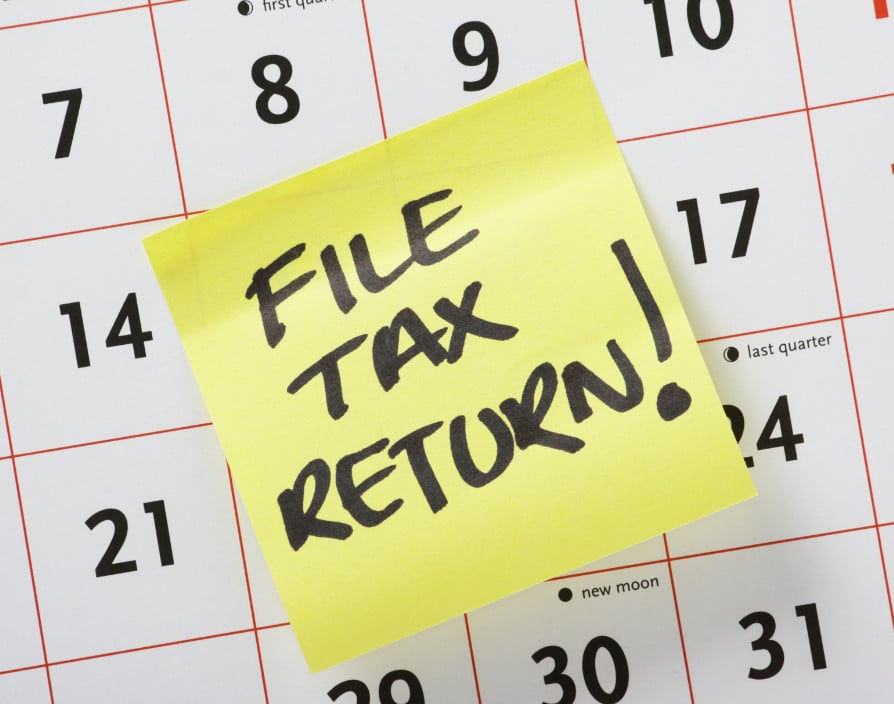January is always the busiest time of year for accountants. At the beginning of the new year, there is a rush of new enquiries which gradually increase over the course of the month as the Self Assessment tax return deadline on 31 January creeps ever closer.
Following the turbulence of 2020, accountants anticipated an even more demanding January than usual. Businesses have been bogged down with the ongoing coronavirus pandemic and arrangements for the end of the Brexit transition period following Britain’s departure from the European Union. As businesses have negotiated a new landscape, tax returns have inevitably fallen to the back of peoples’ minds.
These predictions have become reality, with HMRC reporting at the beginning of last week that an estimated 5.4 million people had not yet completed their tax returns. This is 45% of those who need to submit a Self Assessment. As well as this, Google Trends data shows that searches for ‘tax return’ in the first week of January were down 17% from the same week last year.
These statistics are concerning as they suggest that over a million business owners are at risk of facing late submission forms, which is a costly mistake to make, especially for new small businesses. The pandemic accelerated business development as many thousands of the UK’s workforce found themselves unemployed or made redundant, with entrepreneurship the most viable means of making a living.
The business boom that this has created, with 780,766 new businesses incorporated in 2020, is a cause of concern for accountants, as many of these new business owners will be submitting their tax returns for the first time. The process can be complex and arduous, and those who have not yet turned their mind to gathering the necessary information are at serious risk of being late and receiving fines.
Who needs to send a Self Assessment tax return?
Anyone who earned over £1,000 in self-employed income (not profits) as a ‘sole trader’ between 6 April 2019 to 5 April 2020 must send their tax return by 31 January 2021. Money earned from regular employment does not count towards the £1,000 figure.
In addition to this, partners in businesses partnerships and people with untaxed income, such as from renting out a property, tips and commissions, savings incomes, and foreign incomes, must submit a tax return by the same deadline.
Not started your tax return yet?
People submitting tax returns for the first time need to register with HMRC, which can take up to 20 working days. Once registered, self-assessment forms can be completed online or via a physical postal form. To complete the tax return, you will need up to date records, including receipts and bank statements, so the form can be filled in correctly.
HMRC advises that individuals who need help with their self-assessment ask friends or family for help, or alternatively hire an accredited accountant. Accountants, once they have received business records, are able to complete tax returns on behalf of their customers, leaving business owners safe in the knowledge that their return will be complete, compliant and submitted on time.
As we speed towards the deadline, accountants’ capacity will be filling up, so small business owners should begin to make enquiries now, as many firms may soon not be able to guarantee that the return is submitted on time. Once you have found an accountant, it is important that you send over up to date records as soon as possible, and that you know your government gateway logins and Unique Taxpayer Reference so that your accountant can get to work straightaway. Ensuring timely responses to any queries the accountant may have will also streamline the process.
Even though it is late in the day for this year’s tax return deadline, setting up with an accountant now will put business owners in an advantageous position for the 2022 tax deadline season as accountants will take on the responsibility of meeting deadlines. Outsourcing tax paperwork gives business owners the time to work on the important areas of business such as growth, so those who started their sole trader business in 2020 can really focus on scaling in 2021.
What if I want to fill out my own tax return?
It is possible to file your Self Assessment tax return without the help of an accountant, as HMRC has a number of resources online. New small business owners should look at these resources as soon as possible to allow enough time to understand requirements, complete the document and ensure it is compliant before the deadline.
What else do self-employed and small business owners need to be aware of as the deadline approaches?
The Self Assessment tax return deadline and the confusion that often shrouds the process is taken as an opportunity by fraudsters year in year out. Over the first week of this year, many individuals took to social media to warn of fake HMRC texts claiming the recipients have a pending tax rebate and urging them to click on a link.
HMRC does not send rebate notifications over text messages, so it is critical that those who receive these texts do not click on the link or share any personal information. These phishing texts can look incredibly sophisticated, especially to the untrained eye, and they are designed to fool cash-stretched individuals and business owners.
The huge number of new small businesses and self-employed people who are inexperienced with filing accounts or tax returns are a goldmine of opportunity for criminals. Negotiating closing financial years and the compliance and legislation that comes with owning a business can be difficult at the best of times and especially so if you have never done it before, so it is unsurprising that members of the public are falling foul of these tricks.
The key telltale signs are slight punctuation and grammar errors and links that are not hosted by gov.uk web addresses (as all HMRC sites are). On the whole, never give any personal details to ‘HMRC’ on email or text message, look out for gov.uk hosted links and if you get a call from HMRC offering tax rebates or other cash, hang up and phone them back on the official phone number ‘ 0300 200 3310.
Of course, if your business accounts are outsourced, your trained accountant will be able to easily determine what is legitimate and what is not, adding extra protection to your business.
If you need assistance in filing your self-assessment tax return, qualified and dedicated accountants at The Accountancy Partnership are on hand and will endeavor to submit before the deadline.
“
Share via:


















































